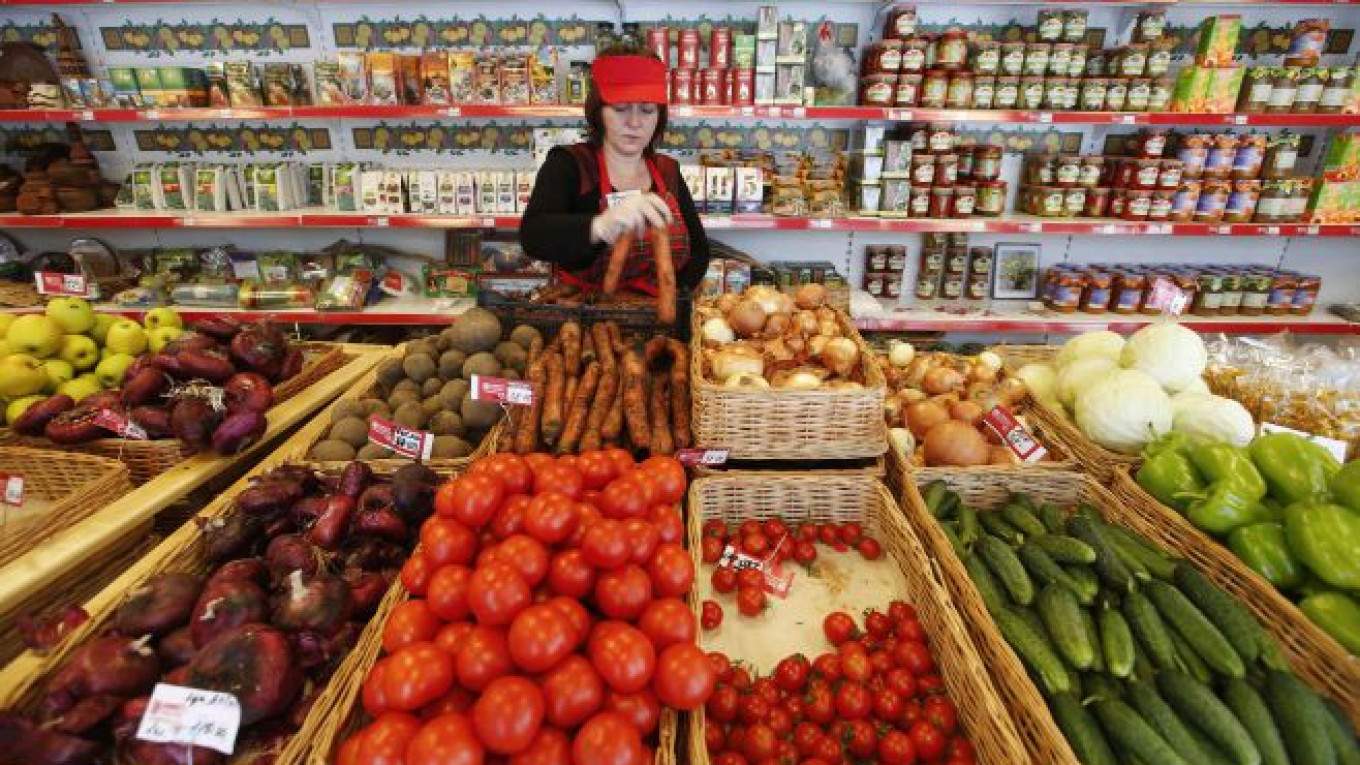Surging inflation may soon become a drag for Russian grocers after it helped boost sales last year, as a slide in the ruble tightens the squeeze on consumers hit by a flagging economy.
Tumbling oil prices and Western sanctions over Russia's role in Ukraine have pushed the ruble to record lows and fueled price rises. Official estimates put annual inflation at more than 13 percent, compared with 11.4 percent in December.
While inflation is normally good for grocers because it can lead to higher revenues, it becomes a problem when shoppers respond by cutting back on spending.
"Unlike during the 2008-09 crisis, now there is a significant decline of real disposable incomes in Russia so food budgets will most likely fall," said Yekaterina Lipatova, an analyst at Moody's Investors Service.
Lipatova said retailers' sales growth could slow in the first quarter and their margins could be hit if they fail to rein in price rises from suppliers.
"In autumn, I was paying 300-350 rubles (around $5) for a 150-gram packet of coffee, yesterday it cost me 1,200. I can't stop buying coffee, I'd die without it, so I'll be buying less meat and dessert," said Ksenia Popova, a pensioner from Moscow.
Prime Minister Dmitry Medvedev said on Friday food retailers and producers must "moderate their appetite" and accept lower profits, raising the prospect of price caps.
Russian food chains attributed sales growth in the last quarter of 2014 to higher spending in discount stores as consumers stocked up, fearing higher inflation and shortfalls.
In contrast, shoppers fled from premium formats, such as hypermarkets, in a sign they are finding it hard to swallow price hikes, analysts say.
"We believe the decline in consumer confidence is hurting 'large' formats more than we anticipated, while accelerating food inflation is becoming less of a tailwind," Otkrytiye's Mikhail Terentiev said in his review of grocer X5's results.
X5 said last week its like-for-like sales rose 12 percent in the fourth quarter as a spike in the average bill offset a decline in customer numbers.
While traffic at its discount stores rose 1.5 percent, it fell more than 6 percent in its supermarkets and hypermarkets.
Low-price grocer Magnit increased both traffic and the bill and saw like-for-like sales jump 17 percent. However, hypermarket chain O'Key reported a 5 percent fall in like-for-like sales as shopper numbers tumbled.
UBS analyst Svetlana Sukhanova said first-quarter results could be pressured by destocking.


